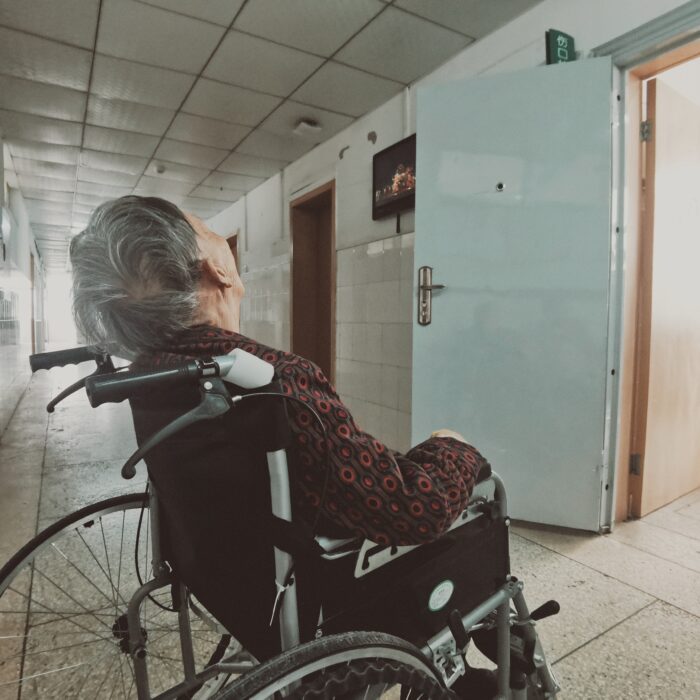You have no items in your cart. Want to get some nice things?
Go shopping Rojin has never been comfortable with the idea of formal dating. That is, to sit with another person at a table, trying to make conversation in a fabricated fashion and hoping everything will eventually ease into effortless chemistry, while the burden of we-are-on-a-date hovers over both parties like Sword of Damocles. What’s worse than that, for her, is to participate in a double date: to have two pairs of eyes augmenting the awkwardness by moderating the proceedings in order to concoct gossip for their own pillow talk. If Rojin’s about to go through that ordeal now it is only to please Sara, or rather, to make Sara realize that she should stop insisting.
Rojin has never been comfortable with the idea of formal dating. That is, to sit with another person at a table, trying to make conversation in a fabricated fashion and hoping everything will eventually ease into effortless chemistry, while the burden of we-are-on-a-date hovers over both parties like Sword of Damocles. What’s worse than that, for her, is to participate in a double date: to have two pairs of eyes augmenting the awkwardness by moderating the proceedings in order to concoct gossip for their own pillow talk. If Rojin’s about to go through that ordeal now it is only to please Sara, or rather, to make Sara realize that she should stop insisting.
As Rojin opens the heavy wooden door of the restaurant, she is welcomed by the throb of music and a beautiful waitress. She looks around, over the waitress’s shoulder, seeking Sara in the busy lounge. Punctual as Sara is, Rojin has no doubt she should be there already. Indeed she is, sitting at a high rectangular table with Behnam and a man, the candidate.
Rojin points in their direction and the waitress steps aside, smiling. Sara holds up both hands to wave, but the subject under Rojin’s scrutiny, the stranger, is prematurely on his feet ready to shake Rojin’s hand. He looks better than the pictures she was shown. An unblemished round face, enhanced by a well-groomed goatee, has made up for his bald head. And as he stands up, he doesn’t look that short.
Sara performs the introductory rituals with a few words, revealing her eagerness to move to the next step. The chairs are arranged in a way that Rojin has to face the man–Fareed–across the table, while Sara and Behnam sit next to each other on the long side of the rectangle, a peculiar arrangement doubtlessly initiated by Sara, as if every word or gesture exchanged had to filter through her and her husband.
Rojin starts to unbutton her coat, taking her time. She pretends she’s looking at the people in the restaurant but she can feel Sara’s gaze. The night before when they confirmed the date over text, Sara had emphasized, “better not to show much skin the first time.”
In response, Rojin hasn’t exposed any part of her body: no slice of thigh, no rounded shoulder, no slip of waist. Not even her arms. She’s wearing a long black dress that she’d worn last at some friend’s father’s funeral. All the buttons are fastened and, to be on the safe side, she’s wearing a thick stocking underneath. Taking Sara’s advice too literally is Rojin’s way of punishing her for impertinence but nothing can be seen in Sara’s face except innocent gratitude. She has no complexity, no imagination. She’s like her name: commonplace and mediocre.
Rojin’s companions have already received their drink orders: Sara has an ice tea and the men are working on some dark beer in funny, tall glasses. Rojin leafs through the menu without reading it.
Sara starts talking, doing her best to overcome the jarring music. “Roji and I have been friends… for how long Roji? Must be sixteen years now. Despite our differences!”
“Or maybe because of them!” Rojin interjects. “I was a devil. Sara was the good friend, the one your mom allows you to stay out late with, thinking that a girl cannot get in trouble with Sara by her side.”
A few years ago, she would have added she had met Hamed one of those late nights.
“Roji has some good traits too. But we’ll get to them later.” Sara laughs, and her husband pats her on the arm. “Back in Iran she studied costume design. She’s been working at a bridal dress designer here. And Fareed is in the finance department of Behnam’s company.”
Behnam sips his beer. “He is in charge of writing our checks.”
This must have been the tenth time he threw out this joke when talking about his colleague. His grin brings about Sara’s and Fareed’s forced laughter. Rojin chooses not to join them.
She knows it’s too early to reveal her well-known dark bluntness (Sara is probably biting her lip), but Rojin’s hatred for math is so true that she feels like making it known. “I always hated working with numbers.”
“Somebody has to do the calculations.” This is Fareed’s first full sentence, and when he receives lukewarm chuckles, he continues, “Granted! Your job must be much more fun.”
The time has come to make jokes about Rojin’s job. How sensitive it is to tease a recently divorced woman whose job happens to be designing bridal dresses?
“Rest assured wrestling grumpy brides who keep blaming the dress for the flaws of their bodies is no more fun than multiplication and division.”
A waitress in her early twenties arrives to take her drink order. Her beautifully carved body, in a tightly black dress that hardly covers her breasts, makes Rojin think how well the girl would fit in their new series of dresses, and then she reminisces: her own dress on her wedding night, how enchanted Hamed was at seeing her, how the guests’ inflated compliments had paled against his raw praise, how she had presumed life was simple and sweet.
She orders a double Caesar. In her peripheral vision, she notices Behnam and Fareed exchanging looks with each other.
Fareed says, “At least your customers don’t live inside a monitor.”
“I wish they did,” she says.
Sara’s clenched jaws show that she’s not happy about where the conversation is going. “Fareed! How was Iran?”
“Well, it’s Iran, you know. Nothing exciting happens.” He sips from his drink.
Rojin waits for more but that was it, his travelogue. If Rojin was to be satisfied by such an unimaginative man, she could as well have stayed with Hamed.
“All the happenings are in Iran,” she cries.
The waitress tries to take Rojin’s menu but she doesn’t let her (“it might become handy”). Chances are her evening is hurtling towards one of those nights that won’t become morning without the aid of alcohol.
“Lately Rojin is flirting with the idea of going back.” Sara explains as if to soften that outcry, rolling her eyes.
Rojin started to think about moving to Iran about three months ago, but only last month did she let Sara know about it. Her excuse was her mother’s worsening diabetes, but her ulterior motive—as far as she could tell—was Hamed. They had both been admitted to Simon Fraser University after dating for two years in Tehran. Right after their wedding they’d immigrated to Canada. Like a storybook, they had graduated and found jobs together. Now that Hamed was out of her life after six years, Iran was a haven for her to resurrect herself and then perhaps come back to this life, well not come back, to immigrate as if for the first time, to anywhere but Vancouver.
Sara’s response was to introduce eligible men who could lure Rojin into staying, guys like Fareed.
“Quite a few of my friends have either attempted going back or thought about it in a serious way,” Fareed says. “For most, it’s just an idea that they never fulfill. Those who do go, can’t take it more than a year. After that accident, when I went back for the funeral, I considered staying. I even talked to a couple of friends about jobs. But following up with inheritance paperwork was enough for me to come to my senses and hold onto my return ticket.” His voice trembles. “Though, Vancouver with all its magic is not the same without her.”
Behnam makes a gauche attempt at consolation by squeezing Fareed’s shoulder. The music in the restaurant sits in the quiet abyss between tracks. The silence obliges Rojin to say something. She reflects on what to say. Death, a young woman’s and so sudden, is too tragic to be taken lightly or, as Rojin is used to, sarcastically.
“My condolences,” she says plainly, a poignant edge in her voice. As she says the words, she realizes accepting Sara’s invitation was a mistake.
***
Rojin and Sara were sitting at the busy Starbucks at Davie and Denman, chatting and eying the beautiful, happy people walking down the street through the window. Rojin hadn’t known it was a set-up, this afternoon of drinking coffee.
“Enough time has passed since Hamed. Don’t you want to think about a serious relationship?” And after a brief pause, Sara continued, “Behnam has an Iranian colleague. He looks like a nice guy… He has been married once, like you.”
Sara sipped from her grande pike, waiting for Rojin to ask about the outcome of that marriage. Rojin didn’t. At the end, Sara explained that two years ago his wife had a stupid accident and died on the spot.
“How sad!” Rojin said to fill the silence.
“Better than divorce! We don’t have to worry who was to blame.”
“Does that mean he has to see if my divorce was my fault?” Rojin snapped.
Rojin very well knew that, at least on paper, she was the culprit. She based her argument on their friends’ judgments. After each divorce in the community, mutual friends picked a side. In Vancouver, only Sara and Behnam stayed with Rojin, though that didn’t count. After all, Sara was Rojin’s high school friend.
***
Fareed manages to spit out a “thank you.” His eyes look a bit wet, though it’s hard to tell in the restaurant’s dim light. The waitress appears with Rojin’s Caesar. Fareed looks so shaken that the waitress turns to the other side of the table, as if Fareed is not supposed to hear, and whispers, “Call me if you’d like to order food.”
Rojin considers hiding behind the menu and asking Sara, “Are you stopping me from going to Iran, to buy him tissues?” Instead, she downs half of her drink and turns to face Fareed again. “Can I ask why your wife passed away?”
Sara kicks her in her knee, but she doesn’t budge. Why does she have to prove her innocence only because she’s divorced and Fareed’s wife is dead? If Hamed had lost fourteen kilograms in only six months, if Hamed slept on the couch for all that period, if Hamed returned to Iran with a one-way ticket and these things were seemingly her fault, who was to say that this weeping man had no role in sending his wife’s lifeless body back to Iran? Death doesn’t vindicate. What if Fareed were the driver? Or, his wife had just had a fight with him?
“She had two tendencies that combined became fatal,” he says with the detachment people develop after several retellings of even horrible things. “First, she listened to loud music; second, she daydreamed. She was crossing the street. A car turned left without seeing her. Her head hit the windshield.”
“So sad!” Sara immediately says. “I can’t imagine someone surviving Tehran’s crazy streets all those years and then this happens to her in the Vancouver suburbs.” She turns to Rojin, sharply, to shift the conversation. “Roji does oil painting. So far, she’s had two exhibitions.”
“Of all people, you know best that I haven’t touched a paintbrush in years. You were helping me packing my stuff. Fareed jan, it’s flattering but don’t take her compliments seriously. They were two group exhibitions. And the owner of the first gallery was a friend.”
“Group exhibitions usually work better, they attract a bigger audience.” Fareed’s eyes gleam. “What’s your style?”
“Impressionism.”
“Who’s your favorite painter?”
“Renoir.”
It’s an exchange that Sara would approve of and, in order to keep it up, Rojin should ask Fareed about his favorite painters and perhaps about his favorite color and then his favorite cuisine. She will have to enlighten him: she dislikes cooking, loves to travel. That could lead her to ask him where in the world he has visited. But instead, she drains her glass and gives him an alcohol-induced piercing stare.
“Don’t you have any question for me?” she asks. “About my first marriage perhaps?”
***
The night before, Sara’s instructions hadn’t gone beyond what to wear and not to wear. She’d forgotten to forbid Rojin from mentioning her previous marriage. If neither her family nor Hamed were able to understand her reasoning for getting a divorce, how could she, in one session, convince this simple man that she left her first marriage because she had become jaded? Jadedness was the best word to describe her inner turmoil. She’d first confided in Sara, while relaxing on a bench in English Bay after a long day of shopping. At the time, without the word, she’d had to explain it with a series of real life instances. It had been confusing and convoluted. No wonder her family and friends couldn’t understand.
“What do you want?” Sara lifted an eyebrow.
“Something like what you and Behnam have.”
“Our marriage is only three months old.”
“Not that! Hamed and I… we had university admissions, circumstances. My dad didn’t want us to leave Iran without anything on paper. Everything was rushed, forced. Even love changes its shape under pressure.” Rojin removed her hair clip, letting the strands fall on her bare shoulder. “It was as if we were catapulted to Canada with an umbilical cord binding us. I didn’t experience living here the way you did: free. I want to be born again.”
“Do you remember the Tajreesh Incident?”
Rojin and Sara had just finished junior year at university when it happened. They were wandering around in crowded Tajreesh Square. A couple, looking to be in their early thirties, brushed past them, hand in hand. Amid their conversation, Rojin heard that the woman called the man Mahmoud. On impulse, she turned around, took some long strides and positioned herself in front of the couple. She grabbed the man’s left hand and raised it, staring at the ring in awe. “Mahmoud! Mahmoud! You’re married! You’d promised me marriage. For one full year you fooled me.” To her own surprise, tears began streaming down her face as she acted out her false claim. Then she let the man’s hand drop and sprinted away, knowing that Sara would clear the mess. This happened many years ago, but every once in a while, Sara and Rojin recalled it and dubbed it as “Tajreesh Incident”.
“Your destructive mentality can’t see happiness, be it for yourself, your dear ones or the strangers in Tajreesh. And it’s not out of malice; a malicious person doesn’t wish bad things for herself. It’s a morbid preference for pain and suffering, as if you are seeking it.” Then she advised Rojin to see a counselor before acting on her feelings.
She didn’t, though. That same night, in the middle of dinner she informed Hamed that she couldn’t be married to him any longer. At first he didn’t believe her, then, when he did, he left his dinner half-finished.
Rojin found Sara’s analysis enlightening, not because it helped her to know herself better, but to better understand Sara’s behavior. It was as if Sara was afraid to show her contentment with life, though by her own standards she was happy. When she was with Rojin she whined about trivial things as if to join Rojin in her misery. But it had gotten worse in the last two years. Sara was actively hiding her happiness. Rojin had to hear it from other sources that Behnam was promoted at work or they were planning to renovate the condo. Lately, Sara had started to complain that at certain times of the day (the most recent being last Friday) Behnam wouldn’t answer her phone calls. Rojin ignored these worries saying that it was impossible for Behnam to think about other women, and even if he did, he wouldn’t know how to approach them. Deep down, she had the impression that Sara fabricated these stories for Rojin’s sake.
***
Fareed drinks from his dark beer and raises his eyebrows, gesturing towards Sara and Behnam. “There are things that these guys have already heard and they’ll be bored to hear them again. And, I’m assuming, there are things they haven’t heard for a reason. So some other time perhaps.”
His wise answer draws laughter. This time Rojin yields, too.
“I don’t think Rojin and I have any secrets from each other,” Sara exclaims.
Rojin orders her next Caesar with a gesture to the waitress and swings one leg over the other, out of Sara’s reach.
“Well,” she says, starting to fan herself with the menu. “My dear friend is so nice that she keeps some of her news from me. She worries that I might feel miserable.”
Sara laughs, light-hearted in the eyes of strangers. But Rojin knows enough to see she’s nervous.
“What are you talking about Rojin jan? What did I hide from–” Sara says, eyes darting.
Rojin turns back to Fareed.
“Exhibit number one: she texts me at eleven p.m., saying that she’d be on a trip with Behnam the next day. Then their pictures leak on Instagram, in bathing suits on the beaches of Playa del Carmen. One day, I’ll probably see her with a rounded belly. I’d ask, oh Sara what’s this, and she’d say, ohhh Roji you don’t check your Facebook, do you?” She keeps her composure in her monotone delivery, maintaining a harmless smile in a way that a naïve listener would see her intentions as benevolently playful.
Behnam raises his pint, coming out of his hiatus. “Well…” he turns to Sara and lifts his owlish eyebrows, as if to convey a message. Sara purses her lips and shrugs as if deferring to Behnam. Making up his mind, he gently takes her hand. “Well, it’s not on Facebook yet. In five and a half months, a baby boy will enter our lives.”
A few of the patrons have taken to an open area that functions as the dance floor. The music, now louder, drowns out Fareed’s excited congratulatory remarks. Sara’s eyes, a bit glistened, indifferent to the music’s roar and Fareed’s excesses, are locked onto Rojin’s, waiting for a reaction. Rojin, though, isn’t there. Her eyes see this Sara, but she’s looking at a Sara four years younger, blushing as she was confiding in Rojin about a new guy in her lab at SFU. Sara’s hesitant flirting with the lab guy who then becomes the guy announcing her pregnancy a moment ago, coincided with Rojin and Hamed’s initial talks about having a baby at the end of which they decided to wait until they bought a place, and in the middle of such hot discussions, as if it was a break, Rojin would tell her then-husband about Sara’s romantic adventures. They both would laugh. Little did she expect the day would come when she’d be divorced and childless and that shy Sara would nurture a baby in her still flat belly and, worse, had not said a word to her hitherto confidante.
Rojin’s mind has no intention to return, it continues wandering into the past; it travels to Tajreesh, where amid her most baseless accusations, the woman still looped her hand around the man’s arm. Then it moves forward in time, reaching for day she revealed her decision to Hamed, her mental eyes settling on his plate: on the chicken breast, the veggies and the half-eaten baby carrot with the marks from Hamed’s teeth on its surface. Now, she’s staring at Sara, present day Sara, and Rojin’s eyes slide down her friend’s belly, bulging even underneath the loose blouse, and then Rojin’s stare shifts to Sara’s drink which usually is not without alcohol.
Rojin hears herself saying it before she does, “How could you, Behnam? When you’re not sure about your marriage. Have you told her how you spend your time after work? Where were you last Friday, between five and six? Don’t you feel responsibility towards this poor baby?”
Behnam’s face, with a mixture of grin from before and genuine astonishment is pricelessly funny. Rojin would have burst into laughter had it not ruined her act.
“After work? Which Friday?” He turns to his wife. “Sara! Did you…? I didn’t…”
Sara picks up the napkin on her lap and throws it dismissively on the table. She jumps to her feet and leaves, weeping. Rojin doesn’t bother to turn her head and follow her exit. She grabs her glass and drinks. When she bangs it on the table she realizes Behnam has disappeared too. She’s sitting alone with Fareed, whose eyes are quietly glancing at something over her shoulder, possibly Sara and Behnam as they disappear into the crowd.
Rojin wants to dance. She feels light, the same levity she’d experienced after she was liberated from the burden of marriage. She rolls up her sleeves and puffs out her chest. She stumbles towards Fareed, drinking the remainder of Behnam’s beer. It was supposed to be a tame night, not a binge. They all have to work tomorrow. But she’s not thinking about tomorrow, any of the tomorrows. She doesn’t care if in the morning she’ll open her eyes from an office worker’s bed whose dull job is to deal with numbers. It doesn’t matter if she has to leave for work with a heavy head to make sure future brides will shine. And the most important difference between tomorrow and yesterday or any day before will be that Sara will never call her again.
That doesn’t matter either. Rojin will be returning to Iran soon and everything will be reset with a blank slate. She extends her hand towards Fareed who looks restless and uncomfortable, understandably so. “Would you like to dance?”
About Mehdi M. Kashani
Mehdi M. Kashani lives and writes in Toronto, Canada. His short story, "Elika’s Dream" won first-place in the Sadeq Hedayat 12th Annual Short Story Contest in 2014. He also has work forthcoming in Hobart and the Los Angeles Review.




